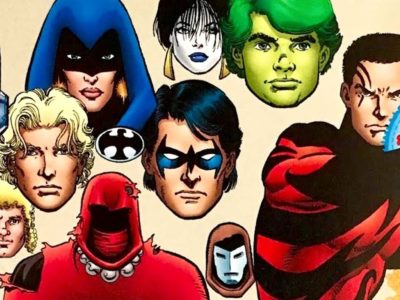[ad_1]
After crash-landing in the 19th-century plantation, Icon changed the course of American history within DC’s Milestone Universe.
WARNING: The following contains spoilers for Icon and Rocket Season One #1, on sale now from DC Comics.
The Milestone hero Icon is an alien who crash-landed on Earth in the 19th century. More specifically, he landed on a plantation in Georgia in the year 1843. His ship repaired his injured body, restringing the tissue to make him look like one of the local people of this new planet. Since he was discovered by a Black slave couple, his body took on the appearance of an African-American baby, and he was adopted.
He grew up as an enslaved person but eventually used his powers to fight back and drive off those who ran the plantation. A white mob came for him, trying to murder him for resisting. Icon easily beat them, and afterward, he took the fight to his enemies and killed Jefferson Davis, the President of the Confederate States of America during the American Civil War, as depicted in Icon and Rocket: Season One #2, by Reginald Hudlin, Doug Braithwaite, Andrew Currie, Brad Anderson and AndWorld Design
Superhero comics frequently use stories of larger-than-life heroes and villains to explore real events. Icon’s origin as an alien who crash-landed in the rural United States has clear parallels to the story of how baby Kal-El’s rocket took him from Krypton to Kansas. Both heroes assimilated into human society, took human names, and appeared to be human, but had superhuman abilities they used to become superheroes. However, while Superman could integrate into modern society with relative ease as a white man, Icon had a very different journey.
When he first landed on Earth, Icon could not access either his powers or his memories from before the crash. As such, he suffered and witnessed extreme racial violence. When he was able to regain both, he rebelled against the family who kept him in bondage. He kicked them off their land but spared their lives. Icon turned the plantation into a “free Black territory in the middle of the slave-owning South in the midst of the Civil War.” When a white mob attacked, Icon did not merely neutralize the attackers, but took out the leader of their cause, Jefferson Davis. This death was covered up with a story about Davis being imprisoned.
Superman was allowed to live and even embody the “American Dream.” And in time, so was Icon, eventually becoming a high-powered lawyer in the present day. The difference is that for Icon to achieve that, he first had to throw off the shackles of bondage, stop a lynch mob and snap off the head of the Confederacy. In killing Jefferson Davis, Icon killed one of the figureheads upholding chattel slavery — a real-world evil far more violent than the acts of most comic-book supervillains. He also won a huge victory for Black liberation, including his own.
This reframes the usually mythologized white-centric narrative about the American Civil War by empowering a Black hero. Superman might fight for truth, justice and the American way, but Icon is not afraid to confront some very important questions about just what the American way really is.
About The Author
[ad_2]






